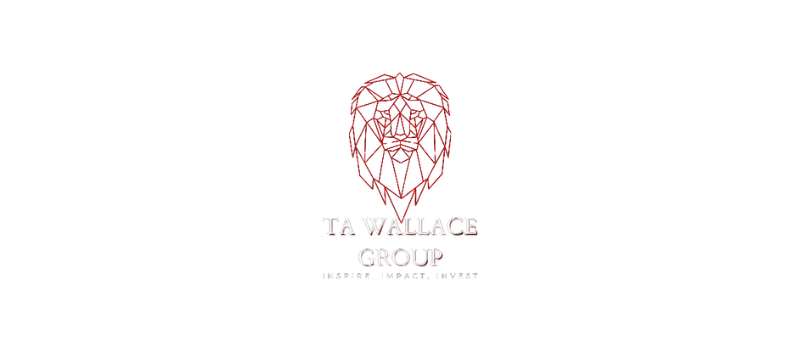Transform Your Life: Essential Life Coaching Strategies for Personal Growth

Life coaching is a transformative process aimed at helping individuals achieve personal growth and self-discovery through the guidance of a trained coach. It involves setting meaningful goals, developing essential skills, and crafting actionable plans to overcome obstacles. By focusing on personal development and self-improvement, life coaching enhances well-being and fosters significant change. This transformational coaching fosters empowerment and positive thinking. Key benefits include increased self-awareness, emotional resilience, and improved decision-making. Through life coaching, individuals can set actionable goals, maintain accountability, and cultivate a positive mindset, all of which contribute to overall wellness and life balance. Life coaching strategies also improve productivity and communication skills. Whether focusing on relationships, career, health, or personal wellness, life coaching enables individuals to adopt proactive mindsets, ensuring personal growth and success. By employing strategies like goal setting, self-reflection, and resilience-building, life coaches support clients in realizing their potential and achieving transformative development. Life coaching encourages a purpose-driven life and enhances leadership skills. Explore the essential strategies of life coaching to transform your life today. What is Life Coaching? Life coaching is a process that helps individuals achieve personal goals and life satisfaction through guidance from a trained coach. Life coaching involves setting goals, developing skills, and creating action plans. It also focuses on building habits and resilience to handle life challenges effectively. A life coach provides support and strategies to overcome obstacles, focusing on personal development and self-improvement. Life coaching aims to enhance well-being and personal growth by providing a structured support system and personalized coaching techniques. Benefits of Life Coaching Benefits of life coaching include increased self-awareness, improved emotional resilience, and enhanced decision-making skills. It also promotes stress management and self-esteem improvement. Life coaching helps individuals set actionable goals and stay accountable, promoting personal growth and life balance. Visualization techniques are often used to clarify life goals and intentions. Life coaching also fosters positive thinking and overall wellness. Affirmations and mindfulness practices are commonly incorporated to enhance emotional wellness and self-efficacy. Improving Personal Growth and Development Improving personal growth and development involves enhancing self-awareness, identifying strengths, and setting life goals. It also includes recognizing weaknesses and implementing strategies for continuous improvement. Life coaching guides clients through reflection, journaling, and habit formation techniques to foster personal growth. These methods help in the development of a growth mindset and stress relief. Coaching strategies emphasize accountability and positive reinforcement to build a growth mindset and resilience. These strategies are critical in change management and achieving life transitions smoothly. Common Areas of Focus in Life Coaching Common areas of focus in life coaching include: Relationships, Career, Health, and More Life coaching helps individuals in relationships, career, health, and personal wellness. It also supports work-life balance and career growth through transformational coaching. Relationship coaching improves communication and emotional intelligence. It fosters emotional growth and helps establish a strong support system. Career coaching aids career transitions and goal alignment. It focuses on enhancing leadership skills and work motivation. Health coaching focuses on personal wellness and resilience. It includes strategies for health improvement and stress management. Life coaching enables proactive mindsets for personal growth and success. Empowering individuals to achieve breakthroughs and personal mission is a key focus. Essential Strategies for Personal Growth Essential strategies for personal growth include setting specific goals, practicing self-reflection, and engaging in continuous learning. Mentorship and feedback loops are also integral components. Personal growth is supported by adopting habits like mindfulness, maintaining a positive mindset, and seeking mentorship. Life skills such as accountability and time management are also important. Effective personal growth strategies help individuals build resilience and manage emotions. These strategies include empowerment and self-discipline techniques. Identifying Goals and Creating Action Plans Identifying goals involves defining clear, specific objectives aligned with personal values and life vision. Creating action plans involves outlining steps to achieve these goals, including setting deadlines and tracking progress. Visualization techniques are often used to detail these steps. This process in life coaching enhances self-awareness and accountability, helping individuals realize their potential and achieve personal growth. Overcoming Limiting Beliefs and Developing Mindset Overcoming limiting beliefs involves recognizing and challenging self-imposed barriers to personal growth. Developing a resilient mindset requires changing perspectives and building self-confidence to pursue goals. It involves cognitive restructuring and adopting a goal-oriented mindset. Life coaches help individuals confront fears, embrace challenges as opportunities, and foster accountability. They act as change agents in the client’s personal development journey. This process enhances emotional intelligence and supports transformative personal development. It also aids in emotional management and life balance strategies. Building Resilience and Coping Skills Building resilience and coping skills involves developing strategies to handle stress and adversity effectively. These strategies are part of resilience building and transformational coaching. Resilience is built by enhancing self-awareness, adaptability, and emotional management techniques. Emotional wellness practices play a significant role in this process. Practical exercises like journaling and mindfulness meditation strengthen coping skills and promote emotional resilience. These exercises can also improve work-life balance and performance. Life coaching helps individuals develop these skills, leading to a more balanced and fulfilling life. The coaching process is tailored to individual needs, ensuring personal success and life balance. Finding the Right Life Coach for You Finding the right life coach involves evaluating qualifications such as empathy, communication skills, and coaching techniques knowledge. Look for coaching certifications and client goals alignment. To choose a life coach, ask about their experience, approach, and specialization to ensure alignment with your personal goals. Inquire about their methods and coaching models used. Effective life coaching depends on the right match between client needs and coach expertise. Consider the coach’s ability to provide motivational interviewing and support system establishment. Qualities to Look for and Questions to Ask When searching for a life coach, look for qualities such as active listening skills, empathy, and adaptability. Essential qualities include understanding human behavior, encouraging self-reflection, and providing effective conflict resolution. These qualities are crucial for facilitating breakthroughs and self-empowerment. Questions to ask a life coach include: These questions ensure the coach’s methods align with your personal

